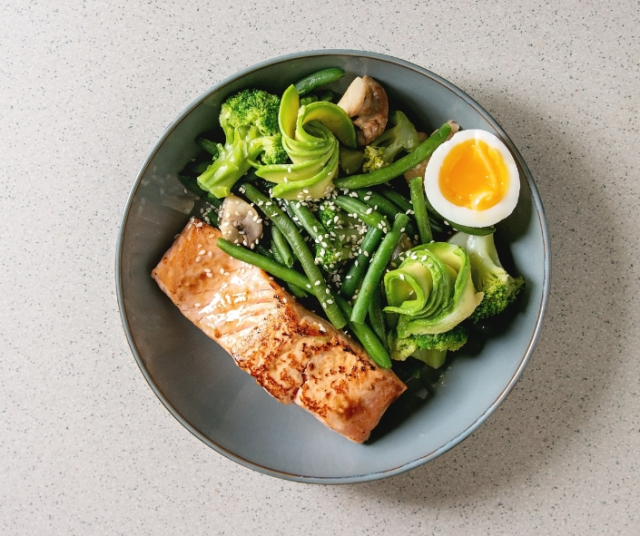The ketogenic diet , also known as the keto diet , has gained popularity in recent years as an effective strategy for losing weight and improving health . This diet is based on drastically reducing carbohydrates and increasing the intake of healthy fats, which induces the body to enter a state of ketosis, where it uses fats as the main source of energy instead of carbohydrates. Explore in detail the basics of the ketogenic diet, its benefits, recommended foods, possible side effects, and how to follow this diet safely and effectively.
What is a ketogenic diet?
A ketogenic diet is an eating plan that is low in carbohydrates, moderate in protein , and high in healthy fats . The main goal of this diet is to change the body's metabolism so that it burns fat instead of carbohydrates for energy. By reducing carbohydrate intake, glucose production is reduced and the production of ketone bodies, which are fat molecules used for fuel, is stimulated.
Benefits
The ketogenic diet has been shown to be effective for weight loss, as it promotes the burning of stored fat for energy . In addition, it can offer other health benefits, such as:
- Appetite reduction: The ketogenic diet can help control appetite and decrease cravings, making it easier to stick to your meal plan and lose weight.
- Improved blood sugar levels: Reducing carbohydrate intake stabilizes blood sugar levels, which may be beneficial for people with diabetes or insulin resistance.
- Increased energy: When the body adapts to using fat for energy, you may experience increased energy levels and greater mental clarity.
- Improved lipid profile: The ketogenic diet has shown benefits in lowering triglyceride levels and increasing HDL cholesterol (the "good" cholesterol), which may decrease the risk of cardiovascular disease.
recommended foods
On the ketogenic diet, it's important to carefully select foods to ensure you maintain a proper balance of macronutrients. Recommended foods on this diet include:
Healthy Fats: Olive oil, coconut oil, avocados, nuts and seeds are excellent sources of healthy fats that can help meet daily requirements.
Protein: Beef, poultry, fish, eggs, and full-fat dairy are recommended protein sources on the keto diet. Care should be taken not to overdo protein intake, as too much can be converted to glucose and affect ketosis levels.
Non-starchy vegetables: Vegetables like spinach, broccoli, kale, asparagus, and zucchini are low-carb and nutrient-dense, making them a great choice for the keto diet.
Possible Side Effects and Considerations
While the ketogenic diet can be beneficial for many people, it can also have side effects and isn't right for everyone. Some possible side effects include:
- Keto Flu: When starting the ketogenic diet, some people may experience flu-like symptoms such as fatigue, dizziness, nausea, and irritability. These symptoms usually go away in a few days as the body adjusts to using fat for energy.
- Nutritional deficiencies: Restricting carbohydrate-rich foods can make it difficult to get certain nutrients , such as fiber, B vitamins , and minerals . It is important to ensure that you include a variety of nutritious foods in your diet, and in some cases, it may be necessary to take supplements.
- Risks for certain health conditions: People with liver disease, pancreatic disorders, or metabolic diseases should consult a health professional before starting the ketogenic diet, as it may not be suitable for them.
Tips for Following a Ketogenic Diet Safely and Effectively
Consult a Health Professional: Before starting any diet, especially one as restrictive as keto, it's important to speak with a doctor or registered dietitian to make sure it's right for you and to receive personalized guidance.
1. Make a gradual transition: Instead of making drastic changes from one day to the next, consider making a gradual transition to the ketogenic diet, gradually reducing carbohydrates and increasing healthy fats.
2. Maintain the right balance : Although the ketogenic diet is high in fat, it is important to select healthy fats and balance protein and vegetable sources.
3. Listen to your body: Each person is unique, so it is important to listen to your body and adjust the diet according to your individual needs. If you experience negative side effects or don't feel good on the diet, consider making adjustments or looking for other alternatives.
If you're considering following a ketogenic diet , it's a good idea to seek the guidance of a health professional to ensure it fits your individual needs and goals.
